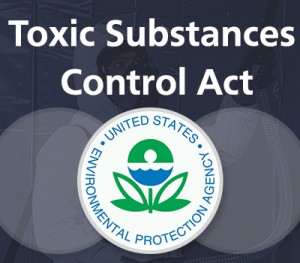
Earlier this week, U.S. Sen. David Vitter, R-La., co-sponsored a bill with Sen. Tom Udall, D-N.M (Udall-Vitter Bill) to amend parts of the 1976 Toxic Substances Control Act (TSCA). The bill if passed, would subject many more chemicals to regulation, set minimum requirements and timelines for EPA testing, establish a fee system to finance the program, and address major weaknesses in TSCA revealed by the court decision in the asbestos case. Despite the positive effects it may have, critics are concerned that the bill would preempt additional state regulation of a chemical once EPA placed it on its high-priority list, meaning that Louisiana for example, would not be able to put additional regulations on asbestos once it is put on EPA’s list.
It should be noted that several environmental groups oppose the legislation and prefer a bill sponsored by Barbara Boxer, D-CA, that does not pre-empt state enforcement. On March 12, Senators Boxer and Ed Markey, D-Mass introduced a piece of legislation that would be tougher on asbestos, address children’s cancer, and also allow states to impose their own tougher regulations on toxic substances. The Boxer/Markey bill is named for Alan Reinstein, who passed away in 2006 at the age of 66 from mesothelioma, a disease associated with exposure to asbestos.
The 1976 Toxic Substances Control Act was originally intended to give the Environmental Protection Agency (EPA) the authority to protect Americans from exposure to harmful substances in clothing, furniture, cleaning products, and the environment. However, chemical manufacturers and environmentalists agree the law is outdated and largely ineffective. Specifically, the TCA largely exempted chemicals already entered into the marketplace from regulation. In effect, out of the 80,000 chemicals in commercial use today, only 8 of them are currently regulated under the TSCA.
Louisiana’s Regulation on Asbestos
Regardless of the outcomes, these two bills are particularly important to Louisiana, which is second only to Texas in the size of its chemical industry. Currently, Louisiana’s Department of Environmental Quality (DEQ) controls activities (ie. demolitions) that involve asbestos. The DEQ works on a licensing scheme that allows companies to dispose of asbestos. It is mostly up to haulers and construction companies to notify landfills of whether there is asbestos in their materials, and critics claim that the state should take a more hands on approach to regulate asbestos dumping. The complete DEQ regulations can be found here. Moreover, the use of asbestos in materials in not out rightly banned in the U.S.
Get Legal Help for Your Asbestos-Related Illnesses
Injuries caused by defective products or asbestos impose substantial hardship on the victims as well as their loved ones. Until asbestos is banned completely in Louisiana and the U.S., Harrell & Nowak will continue to zealously represent people who have suffered from mesothelioma in litigation against companies who use the material. We have recovered millions of dollars in settlements and verdicts on behalf of clients, and a success rate of 90% in our litigation. If you have or a loved one has been injured contact our New Orleans injury law firm today for a free, confidential consultation.
